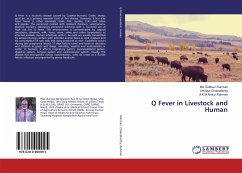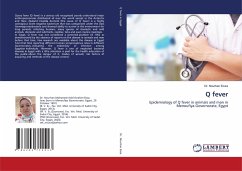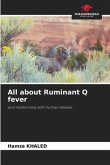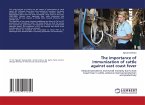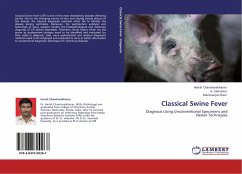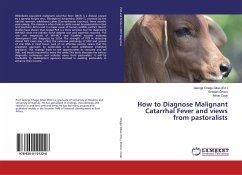Q fever is a zoonotic disease caused by Coxiella burnetii. Cattle, sheep, goat act as a primary reservoir host of this disease. However, it has also been found in other mammals, birds, fish, reptiles, ticks and other arthropods. The personnel related with livestock (farmers, veterinarians, abattoir workers, laboratory personnel working with C. burnetii) are at high risk for Q fever. The environment is contaminated by vaginal secretions, placenta, milk, feces, urine, saliva and other by-products of infected animals. Human infections with C. burnetii are usually transmitted by aerosol during contact with infected animal feces or bird residues and by consumption of raw milk and dairy products as well. Coxiellosis occurs during late pregnancy (about 15 days before term) and leads to abortion and stillbirth in goats and sheep, infertility, mastitis and endometritis in cattle. In humans, it affects respiratory system, musculoskeletal system, digestive system, nervous system and cardiovascular system. Usually, the disease has non-specific clinical manifestation, with an onset as a flu-like febrile infection accompanied by severe headache.
Bitte wählen Sie Ihr Anliegen aus.
Rechnungen
Retourenschein anfordern
Bestellstatus
Storno

